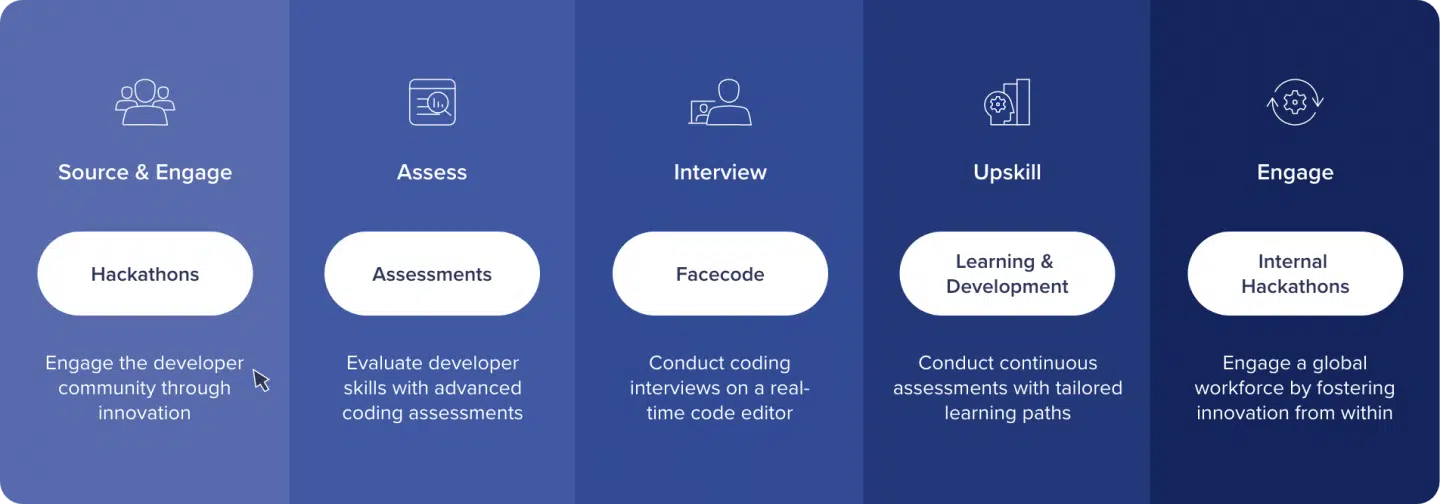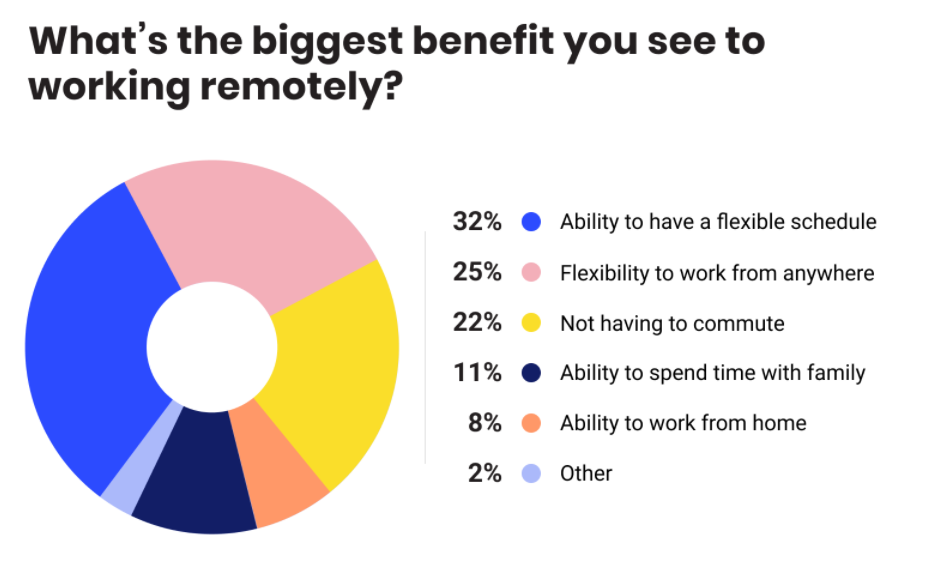The global rise in remote work has resulted in a growing demand for skilled software engineers who can excel in a virtual environment. However, finding and hiring exceptional talent for remote software engineering positions can be a challenging task. In this comprehensive guide, we will explore effective strategies backed by statistics and research to help you identify and attract top remote software engineers. By implementing these strategies, you can build a high-performing team that drives success in the evolving remote work landscape.
Hire senior, high-performing remote developers with Index.dev in just 48 hours →

1. Defining clear requirements
The first step in hiring top remote software engineers is to define clear and specific requirements. A survey conducted by Stack Overflow in 2021 revealed that the most sought-after technical skills for remote software engineering positions include JavaScript, Python, Java, cloud computing, and web development expertise. Additionally, consider experience level and domain knowledge to ensure a good project fit. By clearly outlining your requirements, you can streamline the hiring process and attract candidates who possess the necessary skills and expertise for your projects.
2. Leveraging online platforms
Online platforms offer a vast talent pool for hiring remote software engineers. According to a recent study by Remote.com, 73% of employers reported using online platforms to find remote talent, highlighting their effectiveness. Platforms such as Index.Dev provide access to a curated network of software engineers with diverse skills and experiences. These platforms offer advanced search filters and targeted messaging tools, allowing you to narrow down your search and efficiently engage with potential candidates. Utilise these platforms to post job listings, review candidate profiles, and initiate conversations with promising candidates.
3. Engaging with remote software engineering communities
Active engagement with remote software engineering communities and forums can yield valuable connections and recommendations. The Remote Work in Tech Report by Hired reveals that 62% of software engineers prefer remote work. By participating in these communities, such as joining Slack channels or attending virtual meetups, you can network with experienced remote software engineers who possess the skills you are seeking. Engage in discussions, share knowledge, and build relationships within these communities to gain insights into the remote talent landscape and receive high-quality referrals. These connections can prove invaluable in identifying top talent and expanding your network of remote professionals.
4. Evaluating technical abilities
Thoroughly evaluating candidates' technical abilities is crucial when hiring remote software engineers. A study by GitLab found that 82% of hiring managers consider a strong online presence, including a well-maintained GitHub profile, a key factor in the hiring process. When reviewing portfolios and GitHub profiles, analyse code samples, contributions to open-source projects, and completed projects to assess coding skills, problem-solving abilities, and adherence to best practices. Look for evidence of innovation, collaboration, and a strong track record of delivering high-quality work. Additionally, consider the candidate's ability to work with remote teams, as evidenced by their contributions and interactions within the open-source community.
Hire senior, high-performing remote developers with Index.dev in just 48 hours →
5. Conducting effective remote interviews
Remote interviews play a pivotal role in assessing candidates' technical proficiency and their compatibility with remote work environments. According to a survey by Owl Labs, 85% of companies conduct remote interviews to evaluate candidates for remote positions. Along with traditional technical questions, incorporate behavioural and situational questions to gain insights into how candidates approach challenges and collaborate remotely. Utilise video conferencing tools to assess communication skills, as effective communication is crucial for remote team success. Additionally, evaluate their ability to work autonomously, their adaptability to different time zones, and their problem-solving and decision-making skills. Conducting comprehensive remote interviews allows you to assess a candidate's technical competence, work ethic, and cultural fit within your remote team.
6. Assessing skills through trial projects
Assigning trial projects to shortlisted candidates is an effective way to evaluate their skills and work style in a real-world scenario. A report by Harvard Business Review indicates that 23% of companies globally are utilising trial projects as part of their hiring process. These projects provide an opportunity to assess a candidate's problem-solving abilities, attention to detail, and adherence to deadlines. Consider assigning a small project that aligns with your company's needs and allows candidates to showcase their technical expertise and collaborative skills. This practical assessment enables you to evaluate a candidate's potential contributions to your team and the compatibility of their work style with your remote work environment.
7. Prioritizing strong communication skills and competitive compensation
Strong communication skills are essential for remote software engineers to effectively collaborate in virtual team environments. The Harvard Business Review emphasises that effective communication is the most critical factor for remote team success. Look for candidates who can articulate ideas clearly, actively participate in discussions, and demonstrate proactive communication habits. Assess their ability to listen actively, provide constructive feedback, and adapt their communication style to different team dynamics and cultural contexts. To attract top talent, offering competitive compensation and benefits is essential. The State of Remote Work 2021 report reveals that 58% of remote workers consider salary and benefits as the most important factors when evaluating job opportunities. Ensure that your compensation package aligns with market standards and provides enticing incentives to attract and retain top remote software engineering talent. Consider additional benefits such as flexible working hours, professional development opportunities, and a supportive remote work culture. Promote work-life balance and showcase your commitment to the well-being and professional growth of your remote team members.
Hire senior, high-performing remote developers with Index.dev in just 48 hours →

In the evolving work landscape, finding and hiring top remote software engineers requires a strategic approach supported by data and research. By defining clear requirements, leveraging online platforms and communities, assessing portfolios, conducting comprehensive remote interviews, collaborating on trial projects, emphasising communication skills, and offering competitive compensation, you can build a team of exceptional remote software engineers. With these strategies in place, you will attract and retain the best talent, ultimately driving the success of your remote software engineering projects.
Explore Index.dev, your end-to-end tech recruitment platform, and see how you can:
- Access a network of 10k developers
- Identify top Python applicants with no manual screening in 48 hours
- Hire 5x faster with pre-vetted candidas (qualified, experiences, and interview-ready)